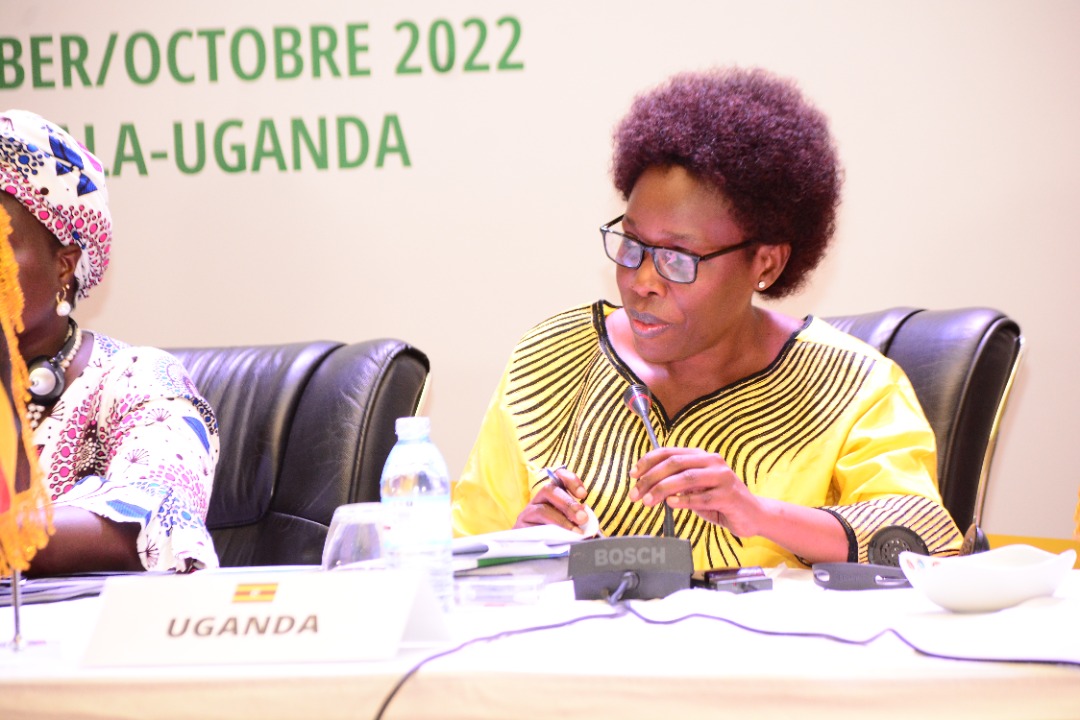
KAMPALA – Uganda has four major land tenure systems – Mailo, freehold, leasehold, and customary with Mailo and customary tenure having the most scenarios where women’s land rights suffer the most impediment.
The customary tenure system accounts for almost 80% of land in Uganda and is governed by the customs and traditions of that particular society where a particular piece of land exists.
It is also largely unregistered and is associated with a number of problems including (a) its inability to provide security of tenure for landowners because it is largely unregistered, and (b) it impedes the advancement of land markets.
It is crucial to note that documented and/or registered land rights serve as conclusive legal evidence of ownership of property, which translates to a sense of security, identity, and a means to mitigate social and economic risks.
In most instances, secure land tenure requires that legal rights to land are adequately defined and documented.
Defining and documenting landowners’ legal rights and the extent of the landholding are important for strengthening tenure security, simplifying land transactions, using land as collateral for credit, and enabling better land administration.
The Land Act 1998 provides for the registration of customary land while the Registration of Tiles Act provides for the registration of land under freehold, leasehold, and mailo tenure systems.
Despite these legal provisions, only 20% of land in Uganda is titled/registered under the freehold, leasehold, and mailo tenure systems.
Customary land rights registration processes have registered much success in documenting and securing land rights as they are becoming more accessible and are affordable, especially for the poor and women, who in most cases hold undocumented and unregistered land rights and are thus prone to land rights violations and tenure insecurity.
Additionally, there exists a wide gender gap in relation to ownership, access, and decision-making power over land more evidently in rural areas. Uganda’s land laws do not expressly discriminate between men and women regarding the right to own land and property. However, women in Uganda are still generally unable to register their land due to the vicious cycle of poverty and entrenched gender inequality, which affects their productivity and increased food insecurity as women are the primary users of the land providing the bulk of “non-contractible” agricultural labor
Women contribute immensely to the agricultural sector however, the National Gender Policy (2007) identifies that there are significant gender inequalities with regard to property rights with women owning only 20% of all registered land in the country with the majority having only user rights and these determined by their relationship with a man either a father or husband.
It is against this background that the NRM Government through the Ministry of Lands, Housing and Urban Development embarked on several interventions to address issues relating to gender inequality.
This has been through the promotion of Land Rights Registration for grassroots women, youth, and vulnerable people. The promotion of gender-sensitive land tools which are pro-poor have enabled women to acquire Certificates of Customary Ownership(CCOs) as provided for in the 1998 Land Act and 2004 Land Regulations.
Implementation of the CCO issuance process has been carried out Kasese, Pader, Butaleja, Mbale, Kisoro, Kabale, Nwoya, Adjumani, Soroti, Katakwi, Namutumba, Terego, Dokolo, Amolatar, Apac, Agago and Maracha,
Since 2015, over 72,000 CCOs have been issued so far and land registered. However, many women and communities remain ignorant of the legal regime of women’s land rights and therefore continue to be denied their land rights and this calls for the intensification of sensitization and awareness-raising programmes.
It is also important to enable women, and other marginalized groups to understand the power that the CCO grants them in addition to protecting their property rights and being used as a tool for economic empowerment and sustained livelihood.
The benefits of land registration for women are many. The reason land disputes still persist is that the women have not demanded and secured this legal documentation to land they hold and own. Those without legal papers continue to live under uncertainty and fear that one day someone will “grab” their land. Registering of land, therefore, clarifies ownership and minimizes conflicts and disputes that may arise out of not having a land title.
Some of the other benefits include reduced incidences of land disputes. There is the security of ownership which in turn stimulates land development. The costs of delays during land transfers are minimized as the recording system makes transfers easier, less expensive, and more secure.
Certificates are used as collateral for loans and by Government to generate revenue when they record any subsequent transactions on these Certificates. There is also improved land use and management as information on land ownership and rights for physical planning facilitate the development of other planning tools such as information on land use, land values and population.
It is for this reason that NRM Government shall continue investing in the registration of women’s land rights in order to economically empower them, leading to food security and improved livelihoods.





